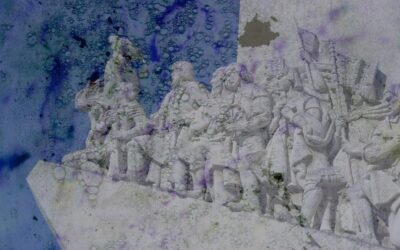Who crushed Leonardo's balls? Made Jackie Chan cry? Let Angelina watch her husband die?
These questions and more will be answered. This week, due to thoughts of not providing an answer to last weeks' dilemma, I’m going to crack the seal on the greatest and grandest question of the ages; where have all the Heroes gone? (see: Macho synchronicity in Film Trends)
Yes kids, here I’m going to give you THE winning solution.
Prepare yourselves as we sift through all manner of past heroic endeavour, from film theory by Joseph Campbell, to how to fill the boots of a shrinking disbelief in power of a central redeeming character, someone who can teach us something about the human spirit.
So sit back, take off your shoes and socks, make fists with fearless toes on the carpet of fallibility, run across the broken glass of a tortured past, swing out on the fireman's hose of modern dilemmas and crash through the plate glass window of insecurity. It’s Christmas time at Nakatomi and we’re breaking into the vault.
First things first, we're talking about an old fashioned action Hero here, resounding with ‘Yippe Ki Yay’, bristling with gun totingness, tumescent with pursed lipped sneers and pumped full of all conquering, quest seeking adventure. Nothing less, nothing indistinct, Nothing from nothing, you know him, the man atop the peak, the saviour from the summit, the Alpha amongst the alfalfa. Got it? Good.
Let's get to the problems up top. "Inception", treading carefully along furrowed brows, not falling foul of the power of criticism, I'll do my best to discover why that film had me glued to my seat and drifting off in the clouds, why I spent a full day working out how the end didn't work… (surely Leonardo is in a different dream life than the Chinaman at the beginning/end who was stuck several levels above out hero?) and what was missing in an entirely fascinating film.
Character: Putting the wild in wilderness
There's just something about that character that Leonardo plays, that reminds me of the school prefect. There's a goody two shoes, sit down and let me tell you the rules, kind of apathy about his demeanour. As he descends like Dante into Hell, illuminating all the traps of life, towards the heart of his own personal darkness, the complexity of his character just doesn't seem to strengthen. Do we ever really get to know anything more about his character? His wife is dead. He let her die. So? Move on big boy. No use worrying about it. Memories aren't enough, yes. You can't escape your past, no.
So-freaking-what. The situation might have us staring at the ceiling, reeling with possibility, but the character has us making excuses and heading for the buffet. Let’s face it we wouldn’t remember him from a party and couldn’t place him in a line-up. He needs a need, a threat and a quest.
My own personal twist would have Leonardo wake up the Chinaman's head and realise he was actually a figment of someone’s imagination, an after dinner belch of Dim Sum. Talk about oneirotic mortality!
There's a famous story about Billy Wilder, allegedly, the story goes like this: Billy Wilder runs into Louis Malle, this is in the late '50s or early '60s, and Louis Malle's just made his most expensive film, which cost $2.5 million. And, Billy Wilder asks him what the film is about, and Louis Malle says, 'Well, it's sort of a dream within a dream,' and Billy Wilder says, 'You just lost $2.5 million!'"
Not so Mr. Wilder, Inception took $6.18 in it's opening weekend in the States. Just to clarify, I loved it but what I want to do is offer a tangible solution to the reason why I fell asleep during the dream.
We could be Heroes… really one day? That’s it?
I'll deal with the Hero's Journey first. Many books have been written about this line of story theory. The Daddy of them all is Joseph Campbell's "The Hero with a Thousand Faces”. First published in 1949, it compares various stories, fairytales and myths, and describes The Hero’s Journey as being one where:
A hero ventures forth from the world of common day into a region of supernatural wonder: fabulous forces are there encountered and a decisive victory is won: the hero comes back from this mysterious adventure with the power to bestow boons on his fellow man.
It’s become the standard for 99.9% of Hollywood stories so let's just call it the Star Wars theory. George Lucas actually borrowed heavily (and we’re talking ‘paint by numbers, and join the dots’ heavily) from Campbell.
As a side note his inspiration for the scene where Luke flies through the Death Star trench, Lucas borrowed/was inspired by "633 Squadron" where British planes fly along a long narrow fjord lined with German anti-aircraft guns to bomb an inaccessable V-2 rocket plant.
While the original WWII scenario seems plausible we are awakened to its celluloid stupidity by Darth Stewie from Family Guy who upon hearing about a fatal design flaw in the Death Star, wonders "Well, I mean, I mean, can't we board it up or, you know, put some plywood over it or something?" But then we’re talking large state-run enterprises here, inefficiencies abound, but hey at least everyone had a job and the transports ran on time.
So, where were we, yes, the hero defeats the baddie, returns with the power to bestow boons on his fellow man. What's all this ‘boon’ bit mean? Well, a boon is usually associated with deities and supernatural beings who bestow gifts on people.
What is being suggested by Campbell is that the Hero actually goes through a transformation, becoming god-like. The word Hero, though entomologically having an unknown root, seems best defined as Heir. An heir to the throne.
What the Hero has done is pass through a death defying experience, battled a monster and changed enough to now become god-like, with beneficent powers to enrich and bless the land.
Hubris: The Anatomy of Hero
How the hell does he do that? He only killed a dragon, got his metal gloves bloody and ravished a princess. How and why does he need to become god-like? Our experiences with god-like people, or rather people who think they are god-like aren't the best usually.
And here we reach the second part of the theory, summarised in "The Seven Basic Plots" by Christopher Booker. Comedy and Tragedy: What happens to the Hero when hubris takes over? When he's killed the Goblin that lives in the middle of the fiery mountain, gets the girl and then realises, hey, if I have this, why can't I have it all? That's Richard the third, Macbeth and Hamlet (though of course he's the jester/fool who is missing from the King's court only in that play)
The dichotomy of modern day film story telling is that the script and character must be likeable, but the hero (and trust me Hollywood executives and writers have read all these books) must also take on a personal journey. As tragedies are rarely made in America how can you have a hero who is likeable, but also is not complete, has to do some inward sorting out, and yet transcend and become a god-like hero without the inner journey being something huge? Self knowledge plus a gift to civilization, pretty tall order.
Well, you cast Bruce Willis. You make him a New York cop who, quite rightly it seems at first, stayed in New York when his wife got a great job and moved with the kids to LA. He had a back log of cases after all, though he does kind of admit when prompted that he thought she's come running back to him.
Then set the story in a skyscraper, surely Dante's purgatory mountain, add some killers, and in amongst the mayhem, the jokes, the brutal killings and glass scared feet, Bruce realises he is actually at fault, for god's sake, he's left his kids thousands of miles away, what was he thinking?
And here we have the very reason we like Bruce Willis as our hero, not only does he kill all the would-be terrorists including a lip curling Alan Rickman, but he's transformed himself, he's realised he was an idiot.
He's also transformed all those that get near him. His wife has changed and realised his worth, the cop who could not fire his gun now can and for an honourable reason, the immature chauffeur is a hero, the wicked punished, the ignorant Captain dismissed with, the TV reporter smacked in the mouth, by his wife. That's his boon, his power to change people.
Let go of the raft
So, who crushed Leonardo's balls? Why is he such an uptight cry baby? What does he really learn? Not a lot. He's still got his wife's spinning top at the end for heaven's sake, throw that away, burn the love letters and photographs, move on.
And lastly, Jackie Chan crying is wonderful, The "Karate Kid" is a good tale and I contend that Jackie the best actor working at the moment. Angelena Jolie in "Salt", watching her husband die? Hmm. I don't buy her as an action hero, especially in this, where she just gets meaner and meaner.
What has she learned in the end? Don't trust anyone, the personal history you told us was false, so you lied to the audience, and you can save the world by dressing as a man? I'll let you figure it out.
Slippery Slopes and Torturous Climbs: Heroes walk
And so to the solution: we want our heroes to laugh at themselves. Gain some humility and realise that in their exalted position they have a responsibility to all those they rule over, not just those they went to school with. Someone said that success is buried in the garden of failure, it’s probably bullshit, but as audiences we see humiliation, contrition and humility as essential parts of the DNA of a hero and ignoring those elements just breeds forgettable characters without legs. Movies have to move and heroes have to realise the long road, that’s just the way it is.
I'll leave you with John McClane, up in the skyscraper all alone talking to the cop on a radio
Listen, I'm starting to get a bad feeling up here. I want you to do something for me. I want you to find my wife. Don't ask me how. By then you'll know how. Uh, I want you to tell her something. I want you to tell her that… Tell her it took me a while to figure out… what a jerk I've been…but, um…that…that when things started to pan out for her…I shoulda been more supportive. And, uh… I just should have been behind her more. Tell her that, um….that she's the best thing that ever happened to a bum like me. She's heard me say "I love you" a thousand times. She never heard me say "I'm sorry". I want you to tell her that, Al. Tell her that John said that he was sorry.

The aim of art is to represent not the outward appearance of things, but their inward significance. – Aristotle


















